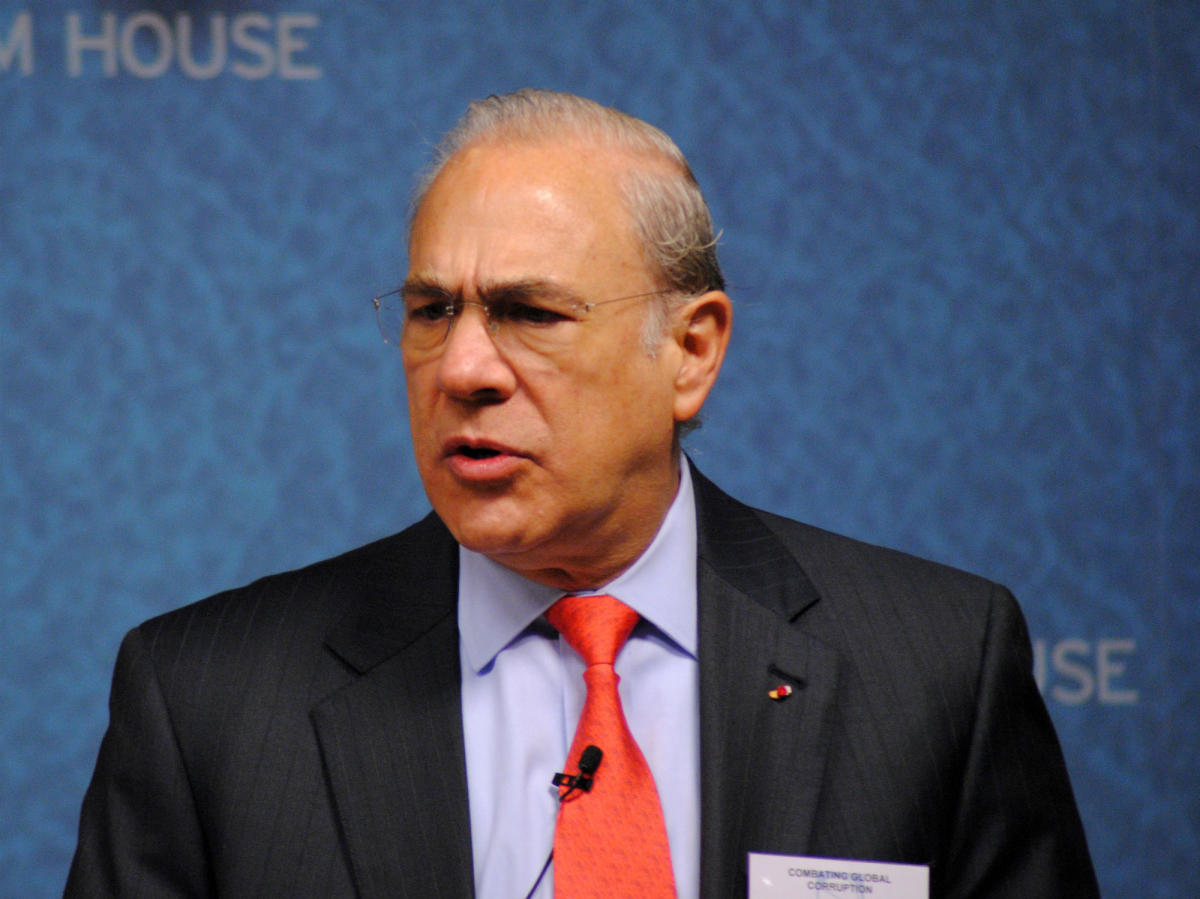Support strong Canadian climate journalism for 2025
Angel Gurría sounds like the leader of an environmental or social justice group.
In a recent University of Toronto lecture, “Climate Action: Time for Implementation,” he stressed that climate change is a public health issue that is “disproportionately affecting the most vulnerable, as well as those least responsible for anthropogenic warming.”
Gurría is secretary-general of the Organisation for Economic Co-operation and Development (OECD), a group representing some of the richest, most industrialized nations on Earth.
A 'breathtaking' vision from OECD
He said the Toronto lecture was his third climate talk in recent years. In the first, he argued that fossil fuel emissions to the atmosphere must be “completely eliminated in the second half of this century.” I disagree with his support of carbon capture — allowing carbon dioxide pollution to be created, and storing it below ground — but his vision of worldwide net-zero emissions is breathtaking.
We associate the words “completely eliminated” with Greenpeace, not the OECD.
He’s certainly no friend of coal-fired power. He argues it’s “no longer cheap given rapid advances in renewables and the heavy costs of air pollution.” In a report, Investing in Climate, Investing in Growth, the OECD laments that “far too much coal-based power generation capacity is still being built.” Given that many member states are economically invested in coal, Gurría’s stance is admirable. He doesn’t ignore the fuel’s harmful effects nor is he afraid to critique his own constituents.
And he understands the situation’s urgency: “Countries can no longer credibly argue that better evidence is needed before we take action,” he said in his Toronto lecture. He has no patience for those who claim the science is unsettled or that climate remedies can be postponed. It’s encouraging that someone of his stature believes the question is no longer “whether,” but “how fast?”
Gurría wants to take Paris further
He’s a great supporter of the Paris climate agreement but believes it doesn’t go far enough. Rather than adopt a cautious approach — perhaps waiting for nations to meet their current targets before embarking on more stringent ones — he urges greater ambition, arguing there is presently a “serious shortfall in the aggregate level of pledged emissions reductions.”
He notes that even if Paris commitments keep temperature rise below 2°C there will be more extreme weather events — including flooding and drought — and food insecurity.
Perhaps most encouraging, he calls for higher carbon prices and a phase-out of fossil fuel subsidies. Carbon prices, he says, “have been too low so far. Many carbon dioxide emissions are not priced at all, and over 90 per cent are priced at less than EUR 30 per tonne.”
In recent years, the debate in Canada has been over whether or not to implement carbon pricing. For Gurría, that question is settled. The issue now is raising the price to levels that will achieve emission-reduction goals. By taking this position, the OECD provides the valuable service of putting opponents of pricing on notice that they are out of step with mainstream economic thought.
Guts on climate action
Fossil fuel subsidies, Gurría writes, function as “negative carbon price signals,” furthering the uptake of oil and gas at the very moment when their use needs to be curtailed. He could have urged the subsidies’ reduction; instead, he calls for their removal. He reminds us of their staggering global scale — about half a trillion dollars annually. He says they “disproportionately benefit” the well off.
Criticizing these subsidies takes guts. It means targeting some of the world’s largest resource companies.
The only serious flaw is his unquestioning support for economic growth. He believes that can be “inclusive and climate-compatible,” but his argument is not wholly convincing. In a recent open letter, some 15,000 scientists raised concerns about “the role of an economy rooted in growth.”
At a minimum, Gurría should recognize the work of thinkers such as Canadian economist (and former David Suzuki Foundation board member) Peter Victor, who argue vital societal goals, such as full employment, can be achieved without growth.
The lesson is not that the OECD still embraces some tenets of traditional economics. That’s a given. The interesting thing is how far elite actors have come in acknowledging key drivers of the climate crisis, and the means to its solution. Skeptics take note: in Gurría we have one of the world’s most influential economists urging dramatic climate action, including a higher, and rising, price on carbon.
— Written with contributions from David Suzuki Foundation climate change policy analyst Gideon Forman.



Comments
Subsidies for the oil and gas industry in Alberta are truly absurd. Royalties are not adequate to even offset the additional public services and infrastructure required due to oil and gas activities, much less to repair the extreme health and environmental damage caused. A little carbon tax will not make up for this.
Global subsidies of 500 Billion dollars a year to the richest corporations on earth, so they can pollute the air we breath freely, so the shareholders can enjoy ever growing huge dividends a year, CONGRATULATIONS to Angel Gurria for mentioning this elephant in the back of the room!!!!!!!!!